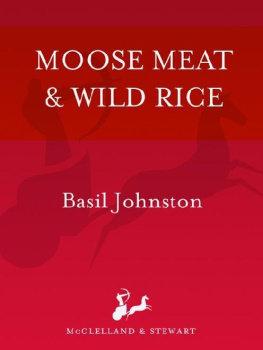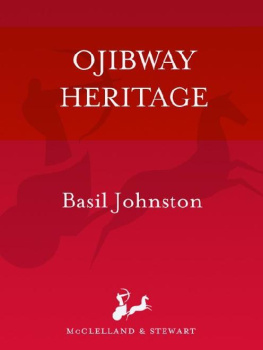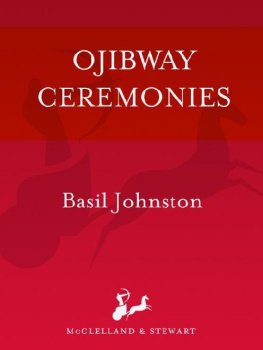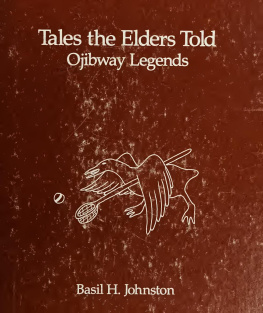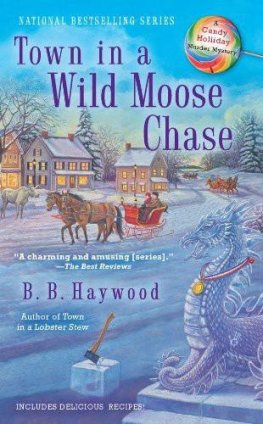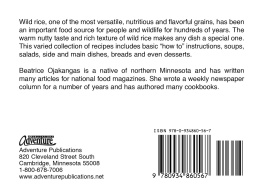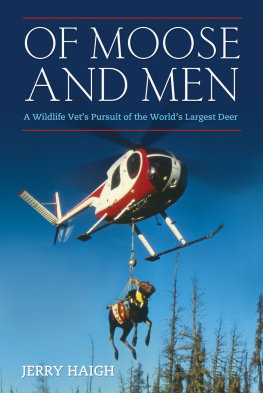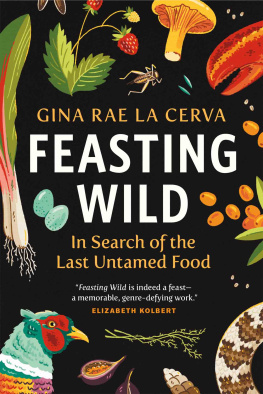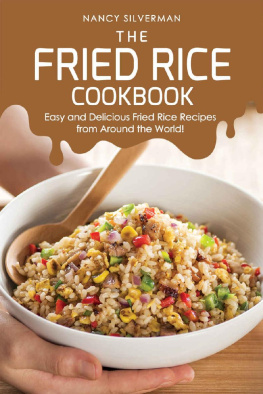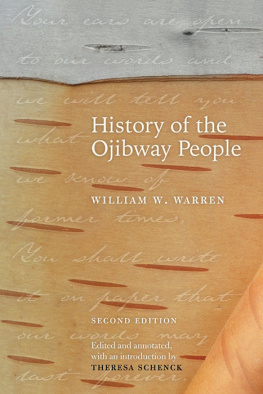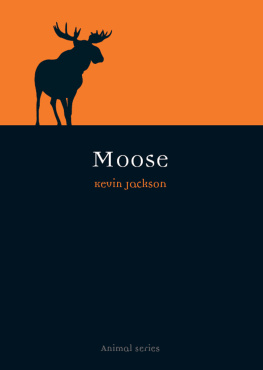Basil Johnston - Moose Meat and Wild Rice: Ojibway Tales
Here you can read online Basil Johnston - Moose Meat and Wild Rice: Ojibway Tales full text of the book (entire story) in english for free. Download pdf and epub, get meaning, cover and reviews about this ebook. City: Toronto, Ontario, year: 1978, publisher: McClelland and Stewart, genre: Detective and thriller. Description of the work, (preface) as well as reviews are available. Best literature library LitArk.com created for fans of good reading and offers a wide selection of genres:
Romance novel
Science fiction
Adventure
Detective
Science
History
Home and family
Prose
Art
Politics
Computer
Non-fiction
Religion
Business
Children
Humor
Choose a favorite category and find really read worthwhile books. Enjoy immersion in the world of imagination, feel the emotions of the characters or learn something new for yourself, make an fascinating discovery.
- Book:Moose Meat and Wild Rice: Ojibway Tales
- Author:
- Publisher:McClelland and Stewart
- Genre:
- Year:1978
- City:Toronto, Ontario
- Rating:5 / 5
- Favourites:Add to favourites
- Your mark:
- 100
- 1
- 2
- 3
- 4
- 5
Moose Meat and Wild Rice: Ojibway Tales: summary, description and annotation
We offer to read an annotation, description, summary or preface (depends on what the author of the book "Moose Meat and Wild Rice: Ojibway Tales" wrote himself). If you haven't found the necessary information about the book — write in the comments, we will try to find it.
Moose Meat and Wild Rice: Ojibway Tales — read online for free the complete book (whole text) full work
Below is the text of the book, divided by pages. System saving the place of the last page read, allows you to conveniently read the book "Moose Meat and Wild Rice: Ojibway Tales" online for free, without having to search again every time where you left off. Put a bookmark, and you can go to the page where you finished reading at any time.
Font size:
Interval:
Bookmark:

Copyright 1978 by Basil Johnston
First published in paperback in 1987
All rights reserved. The use of any part of this publication reproduced, transmitted in any form or by any means, electronic, mechanical, photocopying, recording, or otherwise, or stored in a retrieval system, without the prior written consent of the publisher - or, in case of photocopying or other reprographic copying, a licence from the Canadian Copyright Licensing Agency is an infringement of the copyright law.
National Library of Canada Cataloguing in Publication
Johnston, Basil H., 1929
Moose meat and wild rice
eISBN: 978-1-55199-592-2
I. Title.
PS8569.048M66 C813.54 C78-001252-6
PR9199.3.J65.M66
We acknowledge the financial support of the Government of Canada through the Book Publishing Industry Development Program and that of the Government of Ontario through the Ontario Media Development Corporations Ontario Book Initiative. We further acknowledge the support of the Canada Council for the Arts and the Ontario Arts Council for our publishing program.
McClelland & Stewart Ltd.
The Canadian Publishers
75 Sherbourne Street
Toronto, Ontario
M5A 2P9
www.mcclelland.com
v3.1
The Moose Meat Point Indian Reserve is populated by about 700 Ojibway. The reserve is like many other Indian reserves; neither prosperous nor severely impoverished; westernized in outward appearance but in soul and spirit very much still Ojibway.
Near by, that is, about twenty or so miles away, is the town of Blunder Bay, a town that once had reason for existence. Its chief claim for recognition today is its unsurpassed understanding of and goodwill toward the natives of Moose Meat Point. Town and reserve are united by a neglected dirt road that is almost unfit for passage by cars.
Moose Meat Point with its 30,000 acres, is isolated, unprepossessing, somewhat less than paradise, but it is home. Since its founding in the 1840s, Moose Meaters have gone from the reserve for various purposes and for varying lengths of time. They have always returned, as they will always return, no matter what. Moose Meat Point is home.
By the time Moose Meaters were herded onto the reserve they had already adopted a number of West European customs, techniques, and approaches into their way of life. Some were imposed upon them. Once incarcerated on the reserve, Moose Meat Indians were expected to advance even more quickly. Missionaries came and government agents were assigned to assist in, hasten, and ensure the success of their advance.
As eager as they were to acquire what the white man had to offer, Moose Meaters had difficulty understanding and deciding upon the relative merits of Brand X religion and Brand X politics. They espoused as many religions as were available to them, only to find that the different faiths were as divisive for Moose Meaters as they were for the white man. Politics produced the same results. Moose Meaters tried to abide by the laws, moral and civil, general and special that were enacted and administered for their own good while trying to keep some of their customs and values alive. However, Moose Meaters could observe one and find themselves breaking another.
As time went by, game diminished and Moose Meaters were forced to go outside the reserve more frequently to seek employment. In their excursions into the white mans world, Moose Meaters discovered more about the white man and his new and startling inventions, which they eagerly imported to the reserve upon their inevitable return.
But many, like the oyster in The Walrus and The Carpenter who chose not to leave his oyster bed, were content to remain in Moose Meat Point where they could live without interference, and in their own fashion, deal with the white man and his peculiar ways; accept, reject, or modify whatever was brought into the village.
More years passed during which the Ojibway in the isolation of Moose Meat Point made little headway. Moose Meaters remained on the reserve and they remained unpolished and unlettered. A school was built and a teacher was hired. With fine manners, acumen, and a good command of English, young Moose Meaters and Moose Meat Point could expect better things.
But things did not get better either on or off the reserve. Better English, service in war, correct deportment, the right to vote, proper dress, social graces, and even new insights did not enhance conditions or the circumstances of the people of Moose Meat Point, nor improve their relations with white people.
Instead, matters seemed to get worse. Unemployment was high, housing poor, general health was bad, and education was eschewed.
Something had to be done. In recent years, the Indian Affairs Branch devised all sorts of programs and handed out grants, left, right and centre to remedy the ills. The provincial government, too, tried to horn in by offering formulae and prescriptions for progress and success. Universities and museums began research in earnest and offered courses. Citizens began clamoring for abolition, education, integration, solution, assimilation, co-operation, and, of course, damnation.
While many aspects of Indian life changed over the years, the basic nature of the Ojibway of Moose Meat Point remained essentially the same. They were individualistic, resourceful, informal, proud, impulsive, imaginative, practical, independent, perceptive, patient, and above all, possessed a wonderful sense of humour. As long as they retained their language, they retained their sense of fun and wit. Unhappily, the language is vanishing.
During the same time, the white man also has remained unchanged. Though he may intend good, the white man has too often allowed his sense of order, organization, superiority, his fondness for paperwork, efficiency, convention, ceremony, change, his penchant for formula, prescription, solution, and his haste, overbearing, force, and decisiveness to negate his intentions.
Such then is the background and the setting for the events that make up the story of the Ojibway of Moose Meat Point in their relationships with the West Europeans and in their attempts to adopt some aspects of West European culture and to keep alive some of their own.
In one sense this story is a kind of a history although it is not intended to be such. Rather, it is intended primarily as an amusing account of Indian-white man relationships.
We are indebted to Tom McCue, Albert Belleau, Harold Belleau, Fred Green, Xavier Michon, Rufus Johnston (my father), Norman Jones, Victor Johnson (deceased), Mike Trudeau (deceased), Eugene Keeshig, Jean Shawana, Joe Peter Pangwish, Gregor Keeshig, Lillian Nadjiwon, dear friends and fellow Moose-Meaters, and to the Ojibway for these accounts.
I dedicate this book to story-tellers, listeners and to all good Moose Meat people; to those with a sense of humour; to Anna Porter and my editor who can smile and giggle; I dedicate this book especially to the white man, without whose customs and evangelistic spirit the events recounted would not have occurred.
THE
RESOURCEFULNESS
OF THE
MOOSE MEAT POINT
OJIBWAY
Six Moose Meat Point Indians, in two canoes, were returning home unhappy from an abortive hunting expedition at the far end of Porcupine Yellow Liver Lake. They were weary from several days of trekking through bush devoid of game, and hungry from a half a day of paddling on empty stomachs. The coming winter would be thin.
Hey! Whats that in the water ahead? asked Madawayash (Whistling Wind) lifting himself up straighter on his knees and pointing to a tiny object in the water a mile or so ahead of them.
Font size:
Interval:
Bookmark:
Similar books «Moose Meat and Wild Rice: Ojibway Tales»
Look at similar books to Moose Meat and Wild Rice: Ojibway Tales. We have selected literature similar in name and meaning in the hope of providing readers with more options to find new, interesting, not yet read works.
Discussion, reviews of the book Moose Meat and Wild Rice: Ojibway Tales and just readers' own opinions. Leave your comments, write what you think about the work, its meaning or the main characters. Specify what exactly you liked and what you didn't like, and why you think so.

